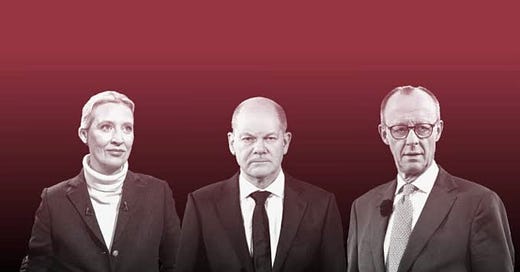Germany Votes: Early Results, Early Calls
Turnout is reported to be 84% - the highest since 1990 and the result roughly where opinion polls predicted.
As New Zealand starts its working week, Germany’s Sunday election is still playing out as the Federal Republic picks its next Bundestag in a snap vote forced by Chancellor Olaf Scholz’s coalition collapse last November, with early voting results now starting to roll in.
It is only the f…
Keep reading with a 7-day free trial
Subscribe to Cranmer’s Substack to keep reading this post and get 7 days of free access to the full post archives.





